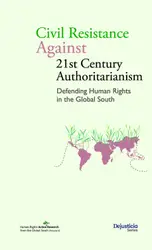The "Khmer Kingdom" explores the fascinating story of the Khmer Empire, a dominant force in Southeast Asia renowned for its architectural prowess and sophisticated socio-political structures. The book traces the empire's rise, highlighting the construction of Angkor Wat, a testament to their advanced engineering and artistic skills, and examines the factors contributing to its eventual decline. This book uniquely integrates historical narratives with recent scholarship and interdisciplinary connections to provide a comprehensive understanding of this ancient civilization.
The book argues that the Khmer Empire's success stemmed from its innovative water management systems and agricultural productivity, which allowed it to exert influence over a vast region. However, these very systems, along with a rigid social hierarchy, ultimately made the empire vulnerable to environmental changes, external invasions, and internal strife.
Delving into archaeology, epigraphic inscriptions, and contemporary accounts, the book progresses chronologically, from the empire's geographical setting and early kingdoms to the reigns of key monarchs and the factors leading to its decline, offering insights into the rediscovery and preservation of Angkor.























